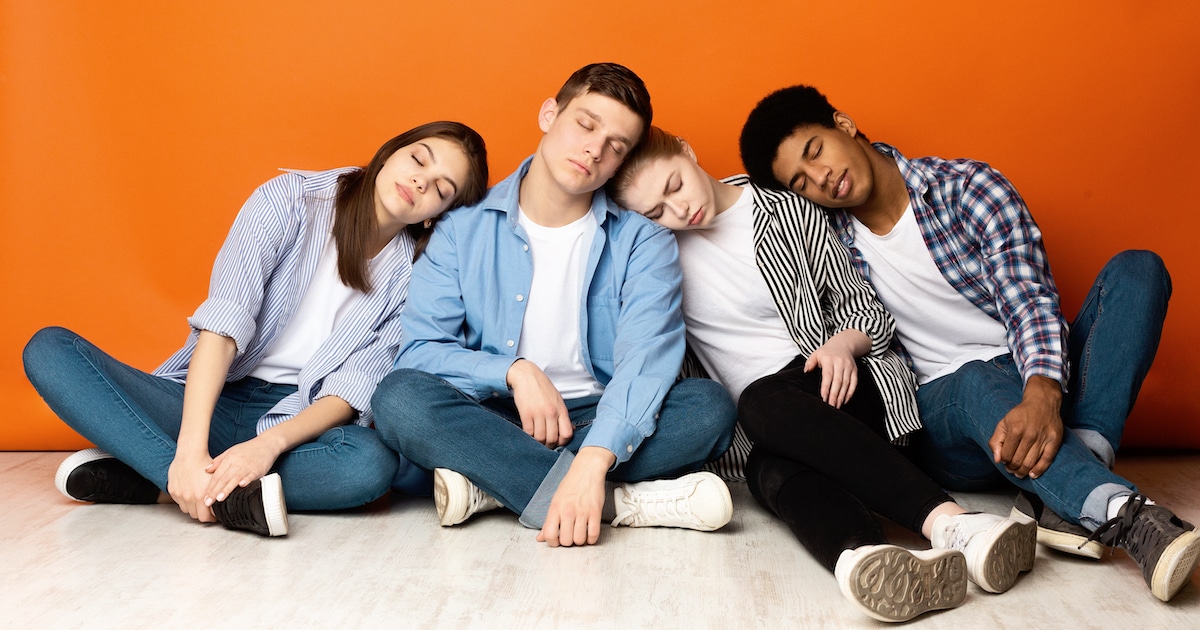Getting Your Family Better Sleep
How You Can Achieve Better Sleep
Sleep is one of the most important gifts we can give ourselves and our families!
Well folks, we’ve made it another month and hopefully by the time you are reading this the snow is gone and the earliest flowers are peeking out! Last month we discussed the importance of sleep- for adults as well as children and this month I’d like to focus on how we can achieve better sleep.

How much sleep do we need?
Here are the most up-to-date recommendations, but keep in mind there are no hard and fast rules- everyone is different. You or your child may need more or less than the following guidelines:
- Newborns (0-3 months): 14-17 hours each day
- Infants (4-11 months): 12-15 hours
- Toddlers (1-2 years): 11-14 hours
- Preschoolers (3-5): 10-13 hours
- School age children (6-13): 9-11 hours
- Teenagers (14-17): 8-10 hours
- Younger adults (18-25): 7-9 hours
- Adults (26-64): 7-9 hours
- Older adults (65+): 7-8 hours
The best guide (at any age) to know if we are getting enough sleep is daytime sleepiness. If we are sleepy and tired during the day, then we probably need more sleep at night. Helping children and teens recognize signs of daytime sleepiness is important, as chronically sleep deprived young people are so accustomed to feeling sleepy, they don’t realize it is abnormal.
How do we get better sleep?
Simply telling ourselves or our kids to get more sleep isn’t always an effective strategy. Some people need motivation to address why they need to change their sleep habits. For these folks, it’s important to explain the sufficient range of problems associated with sleep deprivation. Sometimes as parents, we focus too much on one problem associated with sleep deprivation. For example we might just say “if you don’t get enough sleep you will be grumpy tomorrow”. Unfortunately, given that changing sleep habits can be hard and involve a lot of sacrifice, it’s important for them to know exactly why working on sleep will be beneficial for them. I find that finding out what each young person cares most about – and then explaining the effect of sleep deprivation in that particular area – can be useful. For example, some young people are highly motivated to do well in sports – and explaining the effects of sleep on strength and speed will help this young person. Some are highly motivated to feel less anxious or sad – and helping these young people understand the effects of sleep deprivation on mood is more useful.
Tips and Tricks
Consider your environment: Make sure your room is dark, cool and quiet. Even small amounts of light and heat can reduce sleep hormones. Help children cover up clock lights, close the door, remove a blanket, and even use ear plugs or a white noise machine if needed.
Calm your body:
When you go to bed, close your eyes, relax your muscles, and stay as still as you can. Test yourself to stay super still for a minute or two and then wriggle around if you need to. Then try to stay super still again. It’s amazing how many children don’t know this basic fact: you can’t get to sleep when you are moving around. Of course, staying really still in bed is a struggle for some young people for a range of reasons. Helping them learn to do this is a slow process – but it’s important to be working on it.
Calm your thoughts:
Repeat calming thoughts to yourself about getting to sleep or create calm pictures or images to play in your head. Kids and teens need coaching about specific “getting to sleep strategies” like using calming thoughts and imagery. It sounds simple, but some young people don’t know what to put in their head when they are trying to get to sleep. Teaching them calming self-talk, using their imagination to visualize calm scenery or “mini movies”, or going over a book/TV show can be really helpful. Some people also feel really anxious about NOT being able to get to sleep and need to create some calm thoughts about sleep itself, like “I’m ok”, “I’m getting better at falling asleep all the time”, or “My muscles are getting more and more relaxed”. Share with them your strategies for falling asleep.
Get up and move:
If you can’t get to sleep within about 15 mins of having your eyes closed and being really still, get up and do something boring for a few minutes, and then try again. Staying in bed for hours trying to sleep is agonizing, miserable, and counter-productive. It can be convenient and comforting for parents to know our kids are safe in bed, however, if they are lying awake for long periods of time this means they are setting up an unconscious association between being awake and in bed, which can cause more problems. If children and teens have genuinely been lying still, with eyes closed (not on their phone/devices), and with a relaxed body, late enough at night – and are not asleep, it’s better for them in the long run if they get up, do something boring (do some stretches, walk to the bathroom and back, look at a magazine or book (not electronic device)), and then try again 15 minutes later. We want to teach them to do this independently, rather than need our input.
Reset your clock:
Start by waking earlier in the morning. Once up, they need to alert their bodies that it is day time straight away. This means turning on some bright lights (or opening blinds to let sunlight in), having breakfast, and even doing some light exercise if this works with their routine. Resetting their body clock early in the morning like this, helps them get to sleep earlier at night.
Get physical:
The more minutes of exercise children and teens get during the day, the quicker they fall asleep at night. The only exception to this is team sports played very late at night – unfortunately this can delay sleep. Otherwise, encouraging our children to do more exercise, sports, and incidental movement during the day has a direct and positive effect on sleep.
No naps:
Be careful about taking naps during the day. Short naps can be great if you don’t have problems sleeping, however, if you do have problems sleeping then even a short one can make it harder to get to sleep at night. Teens in particular who sleep during free periods, after school, or during the afternoon on the weekend will often have more trouble getting to sleep at night than those who don’t. They don’t have enough “sleep debt” built up by night time to get to sleep and end up staying awake until very late – and then have trouble getting up in the morning. And so the cycle continues…
Manage Screen Time:
Devices should be turned off and removed from the bedroom at least 30 – 60 minutes before bed. Looking at blue light from phones or laptops decreases the production of melatonin, our “sleep hormone”, and makes us feel more alert. There are now several years of studies which show an association between late night electronic device use and sleep quality. Some preliminary studies have shown that even a “quick” look at our devices in the middle of the night can interfere with not only getting back to sleep, but getting enough “slow wave” (deep) sleep. Of course most young people are not internally motivated to turn off these highly pleasurable and fun social media and gaming devices – but knowing the research behind it can reduce the arguments when parents put the rules in place.
Have a snack:
There’s such a thing as sleepy foods. These are foods with high-glycemic carbs containing alpha carotene, selenium, lycopene, potassium, magnesium, tryptophan, and calcium. So try a banana or low fat yogurt for a bedtime snack. And stay away from high fat and spicy foods which can negatively impact sleep.
We need to tell young people that learning to get enough sleep is like learning to manage our physical fitness, or learning to read – or any other tricky area of life. It takes some time, effort and sacrifice. We should teach our young people to be patient with themselves as they learn these life-long skills.
If your family tries these behaviors and you are still concerned about their quality or quantity of sleep, speak with a professional. Your pediatrician or psychologist may suggest keeping a sleep diary to collect more information or refer you to a sleep specialist. Sleep is one of the most important gifts we can give ourselves and our families, do not be afraid to ask for help!
Sleep Well!
Dr. L




